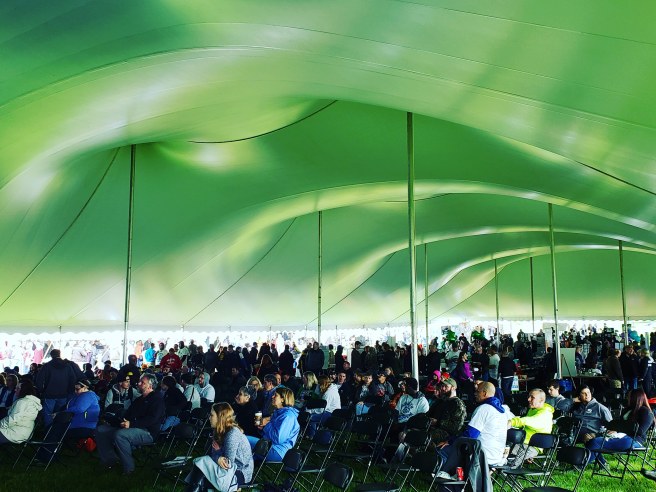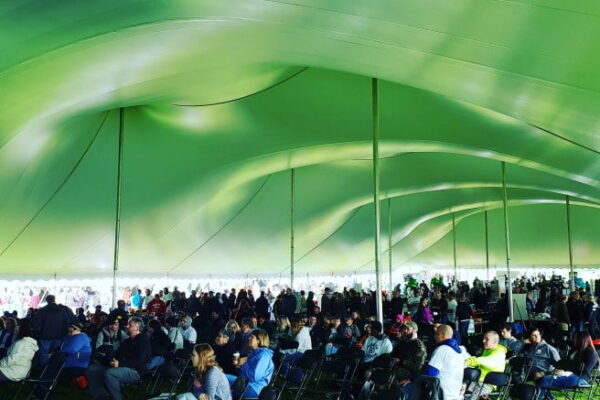
Photo: Rally in the Valley, 2018 – Allentown PA
In early recovery many years ago, one of the things I was most impressed was the diversity of people who welcomed me into recovery. I observed bikers next to corporate executives and grocery store clerks talking with engineers about our common purpose, recovery. It got me thinking about big tent recovery.
The reality for many of us in recovery was that our personal politics, religious or other beliefs were a far distant second to this thing that brought us together. For many of us, this common bond of recovery was then and remains our collective lifeline. We dared not let those other things interfere with that which brought us together in common bond. I suspect as a result, may of us also learned about each other and grew to respect how we have had vastly different experiences and perspectives. Having spent a whole lot of time in rooms with people who did not look like me or come from similar backgrounds, I know I did.
Addiction and recovery from addiction is a complex, long term process that varies from person to person along as many individualized pathways as there are people on the journey of recovery. As addiction impacts every facet of life, recovery also involves and relates to a myriad of other social challenges. What at the heart of what recovery community advocacy are we focused on? The answer to this question is going to vary community to community. Developing a deeper understanding of how we approach the answer may assist us in staying focused on our core mission.
To the best of my understanding, the core focus of recovery advocacy is on expanding the number of people who can obtain and sustain long term recovery in all its diversity. It is the focus that has resonated with groups focused on traditional treatment, recovery support services, recovery high schools, collegiate recovery programming and recovery housing needs to name a few. All of these elements and more are needed to develop a long term, recovery focused care model in which recovery is the probable outcome for everyone.
We must have a deep understanding of where we came from to understand where we are going if we are to remain on the right track to get there. In 2001, recovery community organization leaders from across the United States come together in St. Paul Minnesota for a historic summit tied to the birth of this new recovery advocacy movement. The three goals that started out what we know call the new recovery advocacy movement were:
- To celebrate and honor recovery in all its diversity,
- To foster advocacy skills in the tradition of American advocacy movements and
- To produce principles, language, strategy and leadership to carry the movement forward.
Have we stayed true to those goals? Are they still the right goals? How do we stay in our lane? I do not pretend here to have the answers. I can tell you that the recovery movement I want to be a part of fosters big tent recovery – everyone is welcome without regard to any other belief or value. I personally think our common welfare depends on fostering a place where it does not matter what color hat you wear, red, blue or some other color. Religion or lack thereof does not matter, pathway to recovery does not matter. You want recovery, you are welcomed. That is all that matters. Big tent recovery.
Decriminalization of drugs, social justice, basic human rights are all issues of deep, substantive concern for so very many of us, but are they our central focus? To what degree if any do we incorporate other issues of broad concern? What is in our “lane” and what is out of our “lane”? What do we risk if anything if we expend our energy on these other issues? I am not sure. But what I can tell you is that it does matter to me profoundly that we stay true to a common purpose and that purpose remains stronger than issues that would otherwise pull us apart.
